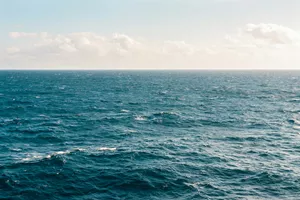New Merchant Navy Regime
The Federal Government introduced a substantial deregulation of maritime and river transport in Argentina.

Emergency Decree 340/2025 was published in the Official Gazette on May 21, 2025, enacting significant reforms to the legal framework of national maritime and river transport. Invoking an emergency in the Argentine maritime and river transportation sector, the Executive Branch considered it essential to adopt exceptional measures aimed at aligning domestic maritime activity with international best practices.
The objectives stated in the Decree include the progressive development of the Argentine Merchant Navy, the promotion of competition between domestic and international operators, the increase in foreign trade volumes, and greater international competitiveness, “while ensuring support for businesses engaged in uninterrupted domestic cabotage within Argentina’s jurisdictional waters.”
The Decree approves a new Special Regime for the Argentine Merchant Navy (Annex I of the Decree) and introduces amendments to Decree-Law 19492/44 and to Laws 20094, 27418, and 27419. According to the Decree's rationale, this Regime is intended to promote the development of the Argentine Merchant Navy without impairing the integrity of the national registry or compromising Argentina’s strategic maritime interests.
Under this Regime, shipowners registered in the Argentine National Shipowners Registry may request the Argentine Coastguard to provisionally suspend the Argentine-flag registration for vessels or naval artifacts engaged in commercial navigation, so they may be registered under foreign registries.
While the priority for Argentine or permanent resident crew members is maintained, the Regime provides that employment contracts for crew members serving on vessels operated by shipowners under this framework will be governed by the law applicable to the vessel’s flag.
Upon the granting of flag suspension, crew members may:
(a) request leave without pay until the vessel is re-registered under the national flag, or
(b) claim severance as provided in article 645 of Law 20094, or
(c) negotiate with the shipowner the contract termination consequences.
The provisional flag suspension is a temporary removal from the national registry, for a non-renewable maximum term of ten years, and will result in the vessel's automatic reinstatement in the national registry either upon expiration or earlier upon the shipowner’s request.
Exclusions from this regime include fishing vessels, vessels used for passenger and/or vehicle transport with a gross tonnage of 500 GRT or less, and vessels used for sport or recreational activities.
The amendments to Decree-Law 19492/44 allow for a flexibilization in cabotage restrictions, by allowing foreign-flagged vessels to operate domestic services in the absence of suitable vessels in the Argentina National Shipowners Registry. The Argentine National Ports and Navigation Agency may authorize such operations for renewable terms of up to 180 days. However, if authorization exceeds 60 days in a given year, the vessel must be manned by Argentine citizens or permanent residents, pursuant to Law 20094, article 143.
The new Decree also aims to streamline administrative procedures. It abolishes the annual renewal requirement for the Argentine National Shipowners Registry and reduces processing times for registration and deregistration of vessels and naval artifacts. The positive administrative silence rule is incorporated into Law 27419, consistent with the Federal Law on Administrative Procedures (Law 19549).
Regarding the national flag treatment for foreign bareboat chartered vessels, the maximum admissible age is extended to 20 years. For vessels operating under the exception regime for international traffic under Law 27419, the allowed period for flag suspension is extended from three to ten years.
The Decree also declares as essential public services all maritime and river navigation for the transport of persons, goods, and cargo, as well as offshore operations and port services (including buoyage, dredging, mooring, stevedoring, unloading, and towing). Under the amended article 24 of Law 25877, no collective labor dispute may result in service coverage of less than 75% of normal operations.
In the labor field, the Decree repeals any regulation that restricts the employer’s freedom to hire and select personnel. The Argentine National Ports and Navigation Agency may issue general, non-binding technical guidelines to assist shipowners in determining crew composition (as per the new text of Law 20094, article 142). Minimum safety manning levels are to be set by the Argentine Naval Prefecture.
Furthermore, the Decree eliminates the requirement to contract exclusively with registered shipyards and naval workshops and dissolves the Naval Industry Advisory Commission previously established under Law 27418.
Together with the new Regime of Maritime, River, and Lake Navigation, enacted through Decree 37/2025 in January 2025, these reforms are a structural transformation of Argentina’s maritime and river transport sector, marking a paradigm shift in the regulatory approach to commercial navigation.
This insight is a brief comment on legal news in Argentina; it does not purport to be an exhaustive analysis or to provide legal advice.